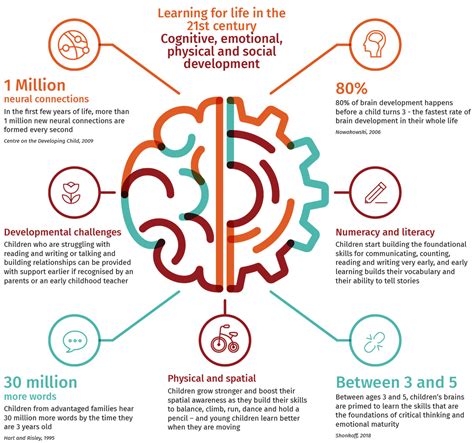Breaking News


Popular News


Explore the brain’s adaptability through neuroplasticity, how learning influences memory formation, and the importance of mental flexibility in adapting to new information.In our ever-changing world, understanding how our brains adapt and evolve is more crucial than ever. The field of neuroscience has revealed fascinating insights into the dynamic nature of our brains, particularly through the concept of neuroplasticity—the remarkable ability of our brains to reorganize and form new connections in response to learning and experiences. As we delve into the intricacies of memory formation, we uncover how learning not only plants new ideas in our minds but also reshapes the very architecture of our brain. Furthermore, mental flexibility emerges as a critical skill, enabling us to embrace new information and perspectives. Join us on this journey as we explore the neuroscience of learning, highlighting how our brains continuously adapt, empowering us to grow and thrive in an ever-evolving landscape.
Contents
The concept of neuroplasticity refers to the brain’s remarkable ability to reorganize and adapt throughout an individual’s life. This process is not only fundamental during early development but also plays a critical role in learning, memory, and recovery from injuries.
Neuroplasticity occurs in several ways. For example, when a person learns a new skill or acquires a new piece of information, their brain can form new neural connections or strengthen existing ones. These changes are often referred to as synaptic plasticity, which encompasses the process of synaptic strengthening and weakening based on experience.
Research has shown that engaging in activities such as learning a new language, practicing musical instruments, or even participating in physical exercise can lead to structural changes in the brain. These activities stimulate the growth of new neurons through a process known as neurogenesis and can enhance cognitive functions.
| Activity | Benefits |
|---|---|
| Learning a new language | Enhances memory and cognitive flexibility |
| Playing a musical instrument | Improves auditory processing and motor skills |
| Physical exercise | Promotes neurogenesis and overall brain health |
Additionally, neuroplasticity plays a significant role in recovery from brain injuries. Following trauma or stroke, the brain can often compensate for lost functions by reorganizing and forming new connections. This adaptive capacity underscores the potential for rehabilitation strategies that aim to harness neuroplasticity to improve outcomes for individuals with neurological deficits.
Overall, understanding and leveraging neuroplasticity presents exciting opportunities not only for enhancing education and learning but also for developing therapeutic interventions to assist those affected by brain injuries and neurological disorders.
Memory formation is a fundamental aspect of how our brains learn and adapt. Through a process called neuroplasticity, our brains are capable of reorganizing themselves by forming new connections throughout life. This adaptability is particularly important during learning experiences, leading to the alteration of brain connections based on the information we absorb.
When we engage in learning, whether it’s acquiring a new skill or memorizing information, specific patterns of neuronal activity occur. This activity stimulates certain neurons, leading to the strengthening of synaptic connections between them. As a result, these connections become more efficient over time, allowing us to recall information more easily. This phenomenon is often referred to as long-term potentiation (LTP).
Furthermore, the structural changes that occur in the brain during memory formation are fascinating. With repeated practice or exposure to new ideas, the dendritic spines on neurons may increase, which correlates with enhanced memory performance. Research shows that engaging in tasks that challenge our cognitive abilities can lead to the growth of new neurons in a process known as neurogenesis. This biological evolution underscores the incredible ability of the brain to adjust and thrive in response to our learning experiences.
Mental flexibility is a crucial cognitive skill that enables individuals to adjust their thinking and behavior in response to new information, unexpected changes, or different perspectives. This ability to adapt is essential not only for personal growth but also for effective problem-solving and decision-making.
One of the key aspects of mental flexibility lies in the brain’s remarkable capacity for neuroplasticity. Neuroplasticity refers to the brain’s ability to reorganize itself by forming new neural connections throughout life. When we encounter new information, our brains work to assimilate this knowledge by either integrating it into existing frameworks or modifying those frameworks to accommodate new ideas.
Research has shown that engaging in activities that challenge our mental flexibility can enhance this ability. Activities such as learning a new language, playing a musical instrument, or solving puzzles can stimulate various areas of the brain, promoting adaptive thinking and enriching our cognitive toolkit. Furthermore, practicing mindfulness and exposing oneself to diverse perspectives can also foster greater mental flexibility, allowing us to navigate the complexities of our ever-evolving world with ease.
What is the main focus of the article?
The article focuses on how our brains adapt and evolve over time to facilitate learning, highlighting the role of neuroplasticity.
What is neuroplasticity?
Neuroplasticity is the brain’s ability to reorganize itself by forming new neural connections throughout life, allowing us to learn and adapt to new experiences.
How does learning physically change the brain?
Learning leads to changes in the brain’s structure and function, including the strengthening of synapses and the formation of new pathways.
What role do neurotransmitters play in learning?
Neurotransmitters are chemicals that transmit signals in the brain, and they are crucial in facilitating communication between neurons during the learning process.
Can adults learn new skills, and how?
Yes, adults can learn new skills through continued practice and engagement, which can lead to neuroplastic changes and improved cognitive abilities.
What strategies can enhance learning based on neuroscience?
Strategies such as spaced repetition, active engagement, and applying learned concepts to real-life scenarios can enhance learning effectiveness.
How does stress affect the brain’s ability to learn?
High levels of stress can negatively impact learning by impairing cognitive functions and reducing neuroplasticity, making it more difficult to form new memories.